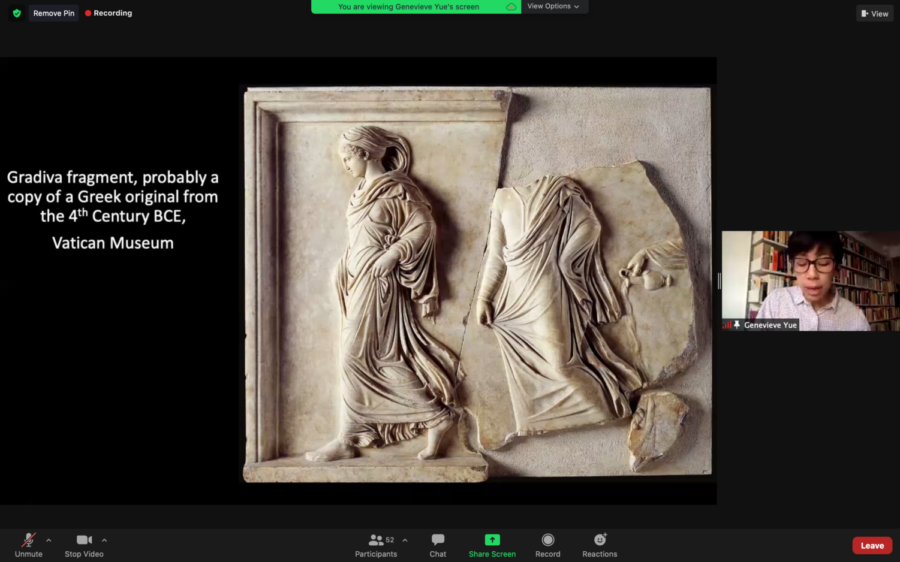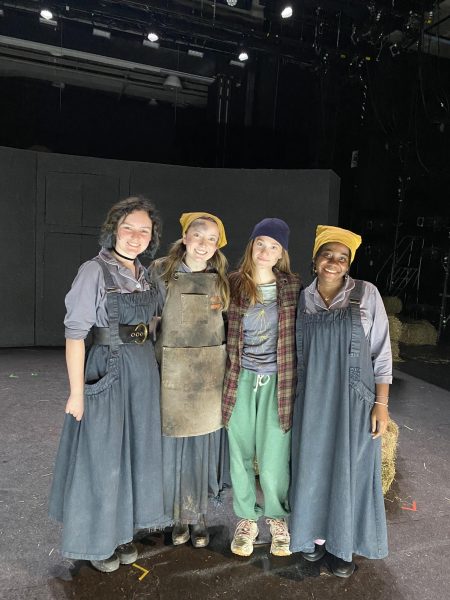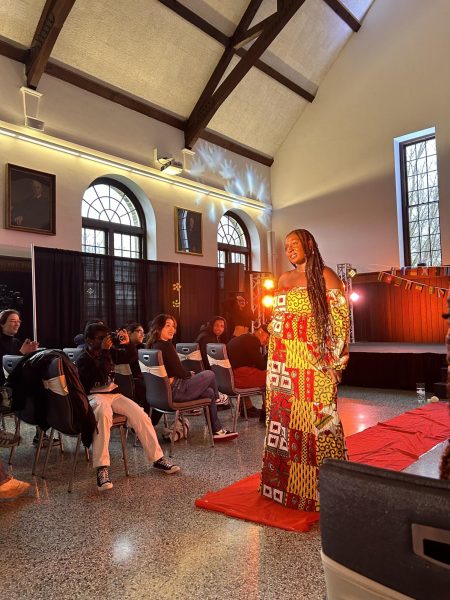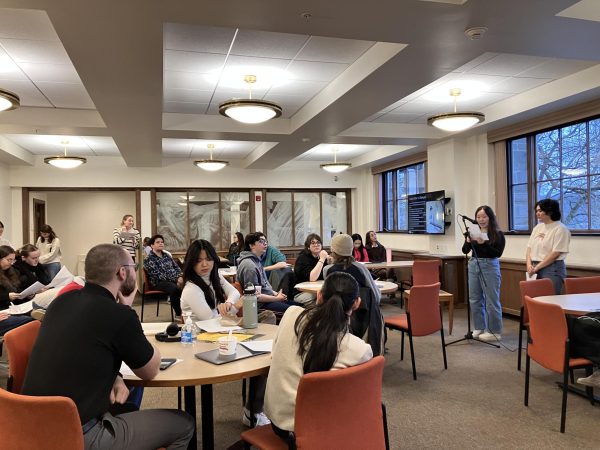Renowned Film Scholar Genevieve Yue Discusses Feminism and Materiality in Film & Media Studies Lecture
Renowned film scholar Genevieve Yue spoke via Zoom to Colgate students, faculty and Hamilton community members about her book Girl Head: Feminism and Film Materiality on Thursday, March 11. A graduate of Princeton University, where she studied Comparative Literature, and holds a PhD in Critical Studies, School of Cinematic Arts from University of Southern California, Yue is currently an assistant professor of Culture and Media and director of Screen Studies at Eugene Lang College, the New School.
The book, published by Fordham University Press in 2020, concerns the relationship between gender and film materiality, focusing specifically on the motif of the vanishing female body in film. In order to explore this motif, Yue examines three sites of technical film production — the film laboratory, editing practices and the film archive. In her lecture, Yue focused on the third chapter of her book which addressed the finale site, the film archive, titled “The Woman in the Film Archive”.
Over 15 participants attended the event. Assistant Professor of Film and Media Studies Neta Alexander, opened the lecture by introducing Yue.
Yue began her lecture by introducing the participants to the myth of Gradiva, around which much of the chapter is centered. The quest for Gradiva can be seen as a metaphor for the film archive. The film archive as a concept is seen as rational and logical, but very little attention is paid to the operation of desire that controls it below the surface. The myth of Gradiva, explained Yue, originates from the fictional novella Gradiva written by German writer Wilhelm Jensen in 1902. The protagonist of the book, a young male archaeologist, encounters the figure of a woman in an antique bas-relief and names her Gradiva, meaning “she who walks.” The protagonist’s search for Gradiva in dreams and in thoughts reflects the gender archival theory of the search for the missing woman in film.
In addition to discussing Sigmund Freud’s analysis of Jensen’s work, Yue also shared clips from three films that explored the myth of the missing woman. The first film, Bill Morrison’s The Film of Her, tells the story of a Library of Congress clerk who saves and explores archival film reels in an attempt to recreate his memory of a woman he saw in a pornographic film in his boyhood. The second film, Cheryl Dunye’s Watermelon Woman, documents the journey of a black lesbian filmmaker in finding an uncredited 1940s black actress known simply as “watermelon woman”. The final film excerpt shown by Yue was from Radha May’s installation When the Towel Drops, Volume 1, Italy. The installation was made up of excised film roll removed due to censorship and put into an archive.
Yue explained how these three examples show — through the search for the missing woman within the archive — the gendered quality of archival knowledge. The woman’s body is constantly missing and invisible to the viewer.
Sophomore Gracie Bowers found the event throught-provoking.
“I found the whole lecture to be very interesting, thinking about how it related to the ways women have been and are still portrayed within films was really eye opening to me,” Bowers said, “The women being portrayed by the typically heterosexual white male director really is something that is not obvious to the viewer initially, but going forward the way they are portrayed as only parts rather than a whole true being needs to be re-evaluated and hopefully changed.”
Paulina Prosnitz is a senior from San Francisco, CA double concentrating in English with a creative writing emphasis and Film and Media Studies. She has...











